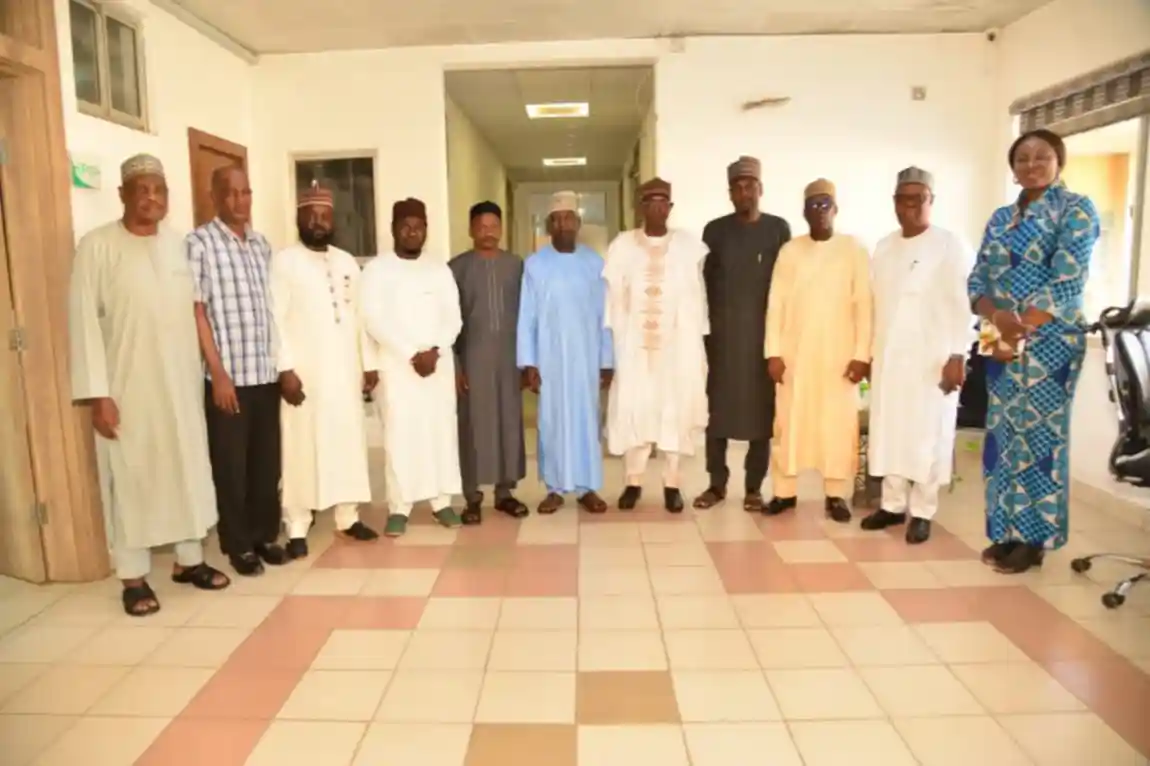The Federal Government has announced its commitment to reposition Nigeria’s livestock sector by using the leather value chain as a strategic anchor for economic growth, export diversification, and large-scale job creation.
Honourable Minister of Livestock Development, Idi Mukhtar Maiha, disclosed this in Abuja while receiving delegations from the Kano Chamber of Commerce, Industry, Mines and Agriculture (KACCIMA) led by Ambassador Usman Darma, the North West Development Commission (NWDC) led by Prof. S. A. Maaji, and the Society for Grassland Research and Development in Nigeria (SGRDN) led by Prof. Olanite Jimoh.
Maiha emphasized Kano’s role as Nigeria’s traditional hub for livestock and leather activities, citing opportunities in tannery operations, red meat processing, feed and fodder development, and dairy production. He stated that Nigeria must move beyond exporting raw hides and skins to producing finished leather products for both domestic and international markets.
“With over five million school-age children in Kano alone, there is already a natural domestic market for leather shoes and related goods,” the Minister said.
He further explained, “If we expand and modernise our tannery operations, not only will we provide affordable quality products for Nigerians, but we will also position our leather industry as a leading global player. Kano’s commercial history, irrigation dams, and skilled workforce make it the heartbeat of this transformation.”
The Minister revealed that the Ministry was preparing NBTE-approved training curricula in feedlotting, fodder compounding, dairy, and leather works. These programs aim to empower 1,000 youth and women in every state with certifications that will improve access to finance and employment opportunities.
On fodder and pasture development, Maiha highlighted Kano’s irrigation dams and agro-ecological advantages, noting that they could support not only local feed production but also exports to Gulf States. He said, “Leather is our entry point, but fodder, red meat, and dairy must be developed alongside. Clustering feedlot operators, processors, and marketers will ensure integrated growth.”
In their separate remarks, the delegations pledged to support the Ministry’s livestock development vision by aligning it with broader regional socio-economic growth strategies.

